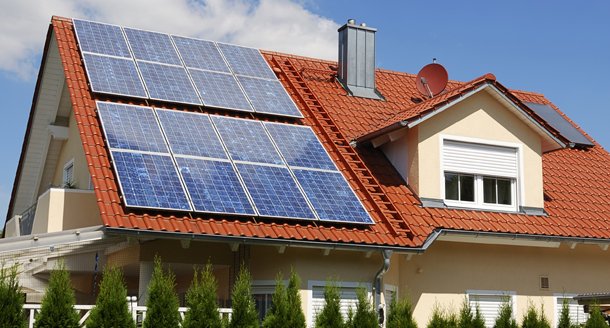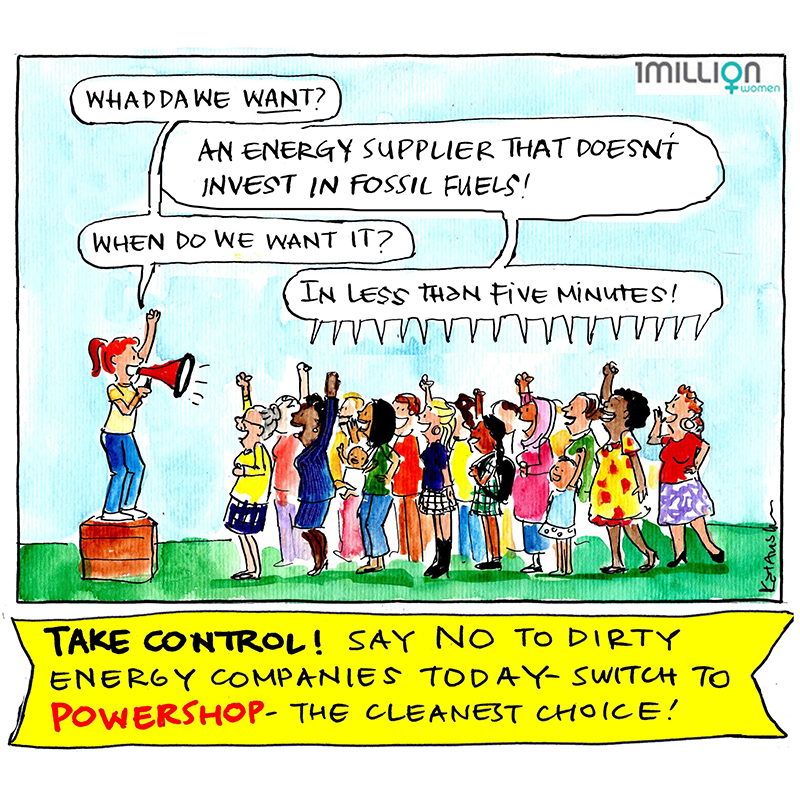Switch your energy provider to Powershop. They're Australia's cleanest power supplier, and do NOT invest in dirty fossil fuels. It takes less than 5 minutes and will lower the carbon footprint of your home significantly (around 7 tonnes of C02 p/yr).
Switch today >Blog post written by Mackenzie Fox.
Mankind's astounding and relentless technological progress and significant population surge has driven a dramatic change in our day to day lifestyle.
Our needs have become more complex, and as such require a significant amount of resources to fuel the growing global appetite for electricity. In Australia alone, the energy use per capita has grown exponentially from the 1960's and is projected to increase by another 50% by 2020.
By indulging this status quo of wasteful and superfluous energy consumption, we are contributing to global pollution and depletion of already limited natural resources. That is why it is imperative to re-think our role in the eco-system and strive towards a more efficient, sustainable and green approach to everyday living.
What better place than your home to make a positive change? Luckily there are a wide variety of ways to lower the carbon footprint of your home without having to give up on the amenities and comforts of modern life.
Home Energy Audit
The first step in making your home more sustainable is in finding out exactly how much energy you consume and where. An easy way of doing this is by installing an inexpensive electricity monitor meter that can calculate your electrical expenses. This energy audit will help you figure out where you use most of your energy, and give you an insight as to where improvements and savings can be made. While some changes may take time and investment, others are merely small but meaningful changes to your daily habits.
Look for Energy Rating Labels
Household appliances make up a large piece of the energy consumption pie chart, and are predicted to become the single biggest energy user in the home by 2020. When choosing and purchasing new appliances for your home; be it a fridge, an AC or a television, be sure to check the Energy Rating Label. ERL's are mandatory for all electronic products, and provide comprehensive energy consumption information. The same applies to lightbulbs. LED light bulbs consume six times less energy than conventional incandescent bulbs, while lasting up to 40 times longer. These individual energy savings will add up to a significant decrease in the overall amount of electricity you consume every day. In addition, you might want to think on a larger scale and try breaking out of a consumer's cycle. Namely, if we don't need a new product then it won't need to be manufactured. This will save the energy and water needed for the production. To target environmentally conscientious customers, some retailers offer refurbished items. This way these home appliances won't need to be made from scratch. Rather, they are just reconditioned. This process saves the energy that would normaly be used to make a brand new appliance.
Alternative Energy Sources
Burning fossil fuels is the prevalent source of energy, but there have been many advances in alternative energy sources that can help power your home. The power of the sun can be harnessed to great effect, either by directly heating water or air, or by using solar electric panels.
Residential solar panels are becoming ever more accessible and popular in Australia. Top of the range models even follow the sun, so that no energy is wasted. However, before jumping on the solar panel bandwagon, you might want to consult a comprehensive guide to understand how to whole process works (buying, installation, selling the electricity etc).While they indubitably present an initial expenditure, alternative energy sources are a sound investment and will yield savings in years to come.
There's also the option to switch your energy provider to a cleaner and greener power provider. Doing this will send a message to dirty energy companies that you are no longer willing to support them investing your money in fossil fuels. Powershop is Australia's greenest energy retailer (Greenpeace 2014) and a proud 1 Million Women partner.

Insulation
A lot of heat, and consequently energy, is wasted due to poor or insufficient insulation. The roof, windows and doors of a home make up for half of this energy loss, so ensuring they are well insulated is a must. Low-eminence, double glazed glass has a special metal-oxide coating that keeps your house cool in the summer and warm in winter. Electro-chromic glass, also known as smart glass, goes one step further and actively changes tint depending on the amount of sunlight by charging ions. Cool roofs use specially designed reflective tiles that combine high solar reflection with low thermal eminence to absorb and lose less heat. However, there is no greener option than opting for a green roof; quite literally planting greenery in soil on your roof. A well designed and properly waterproofed green roof not only provides unsurpassed insulation but also adds to the natural environment. By filtering pollutants and carbon dioxide from the air, a green roof provides a healthier living environment that is more in tune with nature.
Energy saving habits
There are several ways of lowering your carbon footprint simply by making small changes to your consumption habits. For example, a desktop PC running around the clock will burn through in excess of $150 over a five year period, while this amount is reduced threefold if put to sleep when not in use. The same applies for all electronics and lighting, if you are not using it, switch it off. Using a power strip can enable you to switch off multiple appliances quickly and easily when necessary. If an appliance is seldom used, plug it out completely, as it would otherwise consume unnecessary power. Thermostat and regulation will also bring your energy consumption down, as will turning it off completely when you are out of the house. Turning fridges and water heaters up to the maximum does very little in enhancing performance, but uses exponentially more energy than an eco-setting. Taking care of your appliances, such as regularly cleaning your AC and washing machine filters, goes a long way in improving their efficiency and lifespan.
Any effort on your part to use less energy on a daily basis is absolutely free of charge but will help fight global warming and pollution while lowering your utility bills.
The importance of energy saving and efficiency goes far beyond our individual selfish desires, such as cutting down our energy bills. Energy efficiency has an impact on every process that is relevant to our functioning as a species, and as such we should collectively work on implementing responsible and renewable energy strategies and habits. Only by taking decisive and deliberate action toward a greener lifestyle can we ensure our thirst for energy does not cause irreversible damage to the environment. By raising awareness of the issues and making positive changes, we will give future generations the tools they will need to preserve the health of our planet.
Header Image via Africabriefing.org

